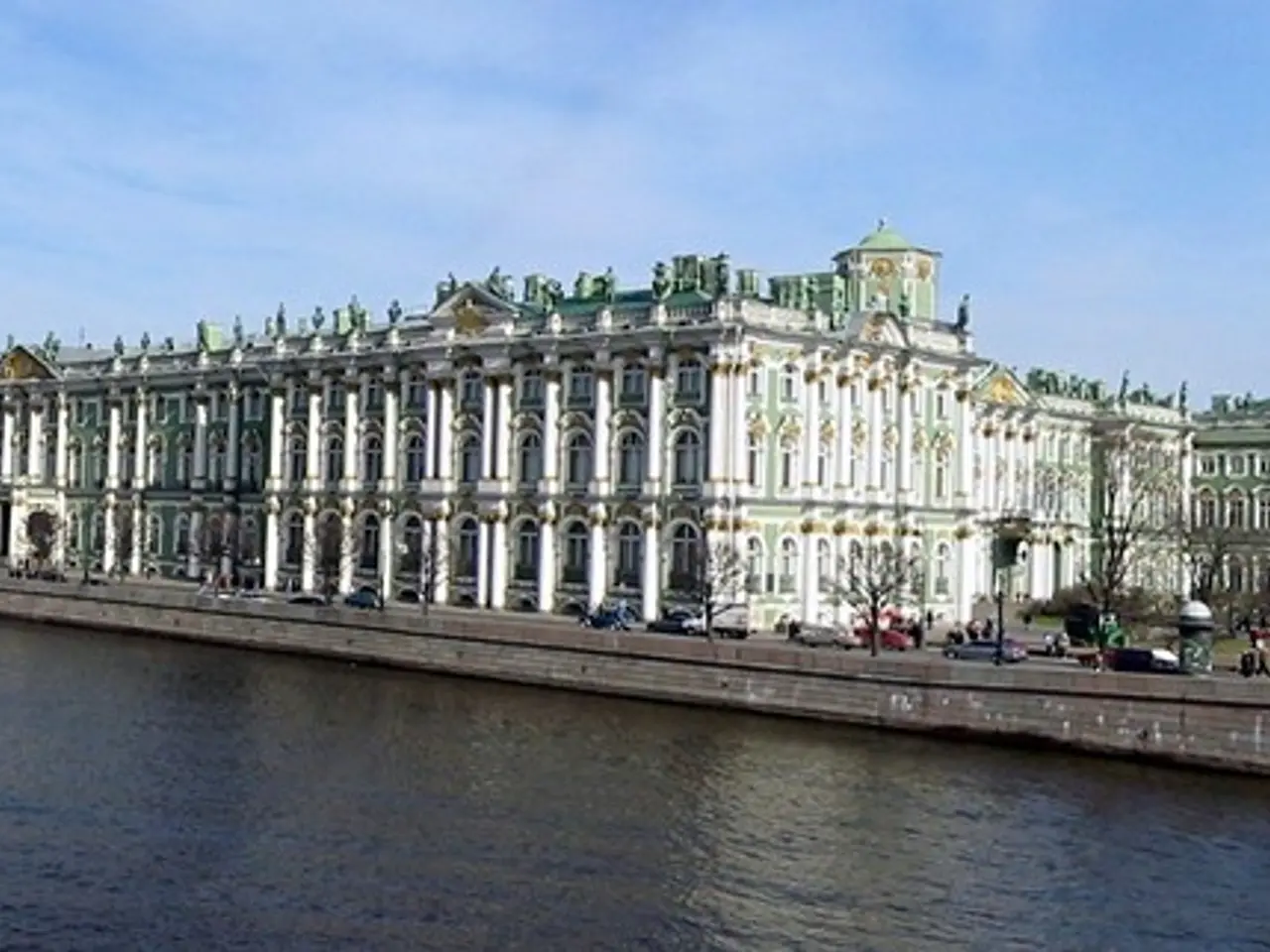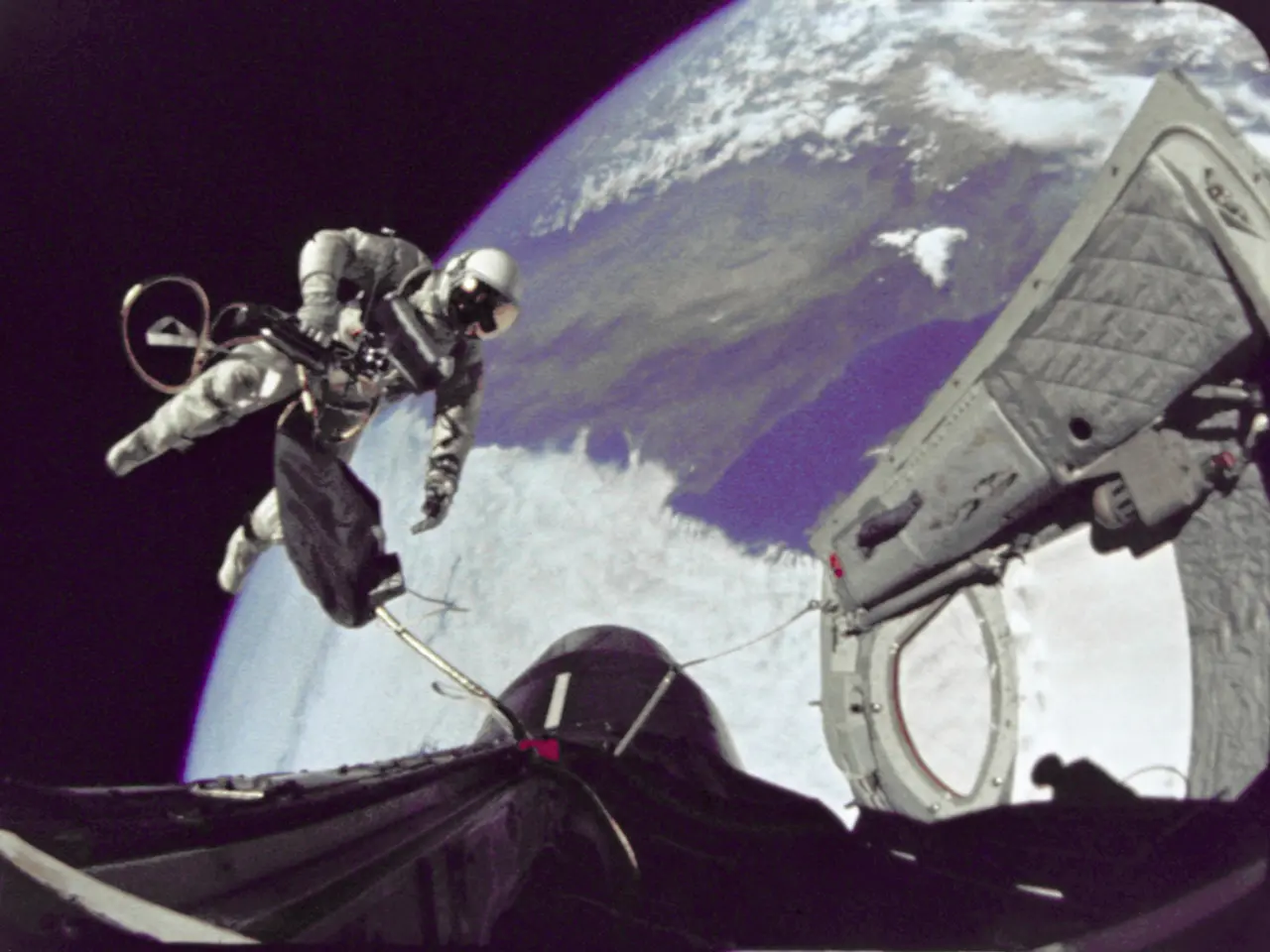China's President Xi Jinping promises enhanced backing for Russia in his meetings with Foreign Minister Sergey Lavrov.
In the ever-evolving landscape of international relations, the collaboration between China and Russia is making a significant impact. This strategic partnership, rooted in a complex historical relationship and mutual strategic interests, is reshaping the global order.
The foundation of this partnership was laid after the dissolution of the Soviet Union in 1991, with both nations seeking to balance US influence and promote a multipolar international system. In 2001, the Treaty of Good-Neighborliness and Friendly Cooperation further solidified their cooperation, marking the beginning of a 20-year strategic, economic, and implicit military pact.
The relationship has seen its ups and downs, with moments of tension such as during the 2008 Russo-Georgian war. However, relations warmed notably after Western sanctions on Russia following the 2014 Crimea annexation. China refrained from condemning Russia’s actions, and both increased economic ties despite some Chinese reluctance due to fears of secondary sanctions.
More recently, in 2019, China and Russia launched a “Comprehensive Strategic Partnership of Coordination for a New Era,” reaffirmed repeatedly by Xi Jinping and Vladimir Putin.
The objectives of this partnership are multifaceted. They include balancing US and Western influence worldwide, deepening economic ties, especially energy cooperation, coordinating positions in international forums, and mutual support in sensitive conflicts like Ukraine.
This collaboration has contributed to a strategic partnership that challenges US military and diplomatic dominance, especially in Central Asia and beyond. While they reject formal military alliances, their military-technical ties are deepening, involving arms trade, missile defense, and joint development projects.
The relationship remains complex and wary, with long-standing historical rivalry and competition in areas like Africa and the Arctic still a factor. However, the partnership is one of convenience rather than deep alliance.
In the context of the Ukraine conflict, China has been a key strategic sponsor for Russia despite claiming neutrality, thereby complicating Western efforts to isolate Moscow. Beijing regularly calls for an end to the fighting, while also accusing Western countries of prolonging the conflict by arming Ukraine.
The Shanghai Cooperation Organisation (SCO), presented by China as a counterweight to Western-led power blocs such as NATO, also plays a crucial role in this partnership. Xi Jinping noted Tuesday that "political mutual trust among member states has deepened."
As the world watches this evolving partnership, it's clear that China and Russia are united in their efforts to oppose Western hegemony, enhance military and economic cooperation, and reshape international power structures. Whether this partnership will lead to a more just and reasonable international order, as Xi Jinping proposed, remains to be seen.
One: Ensnared in the intricacies of international relations, the collaboration between China and Russia remains significant, as they jointly challenge Western hegemony while also coordinating positions in war-and-conflicts, such as the ongoing Ukraine conflict.
Two: Amidst the backdrop of policy-and-legislation, the passage of time has strengthened the China-Russia alliance, with key milestones like the 2001 Treaty of Good-Neighborliness and Friendly Cooperation and the 2019 "Comprehensive Strategic Partnership of Coordination for a New Era" outlining their commitment to balance Western influence, deepen economic ties, and reshape the global order, including general-news events like the SCO's role as a counterweight to NATO.







